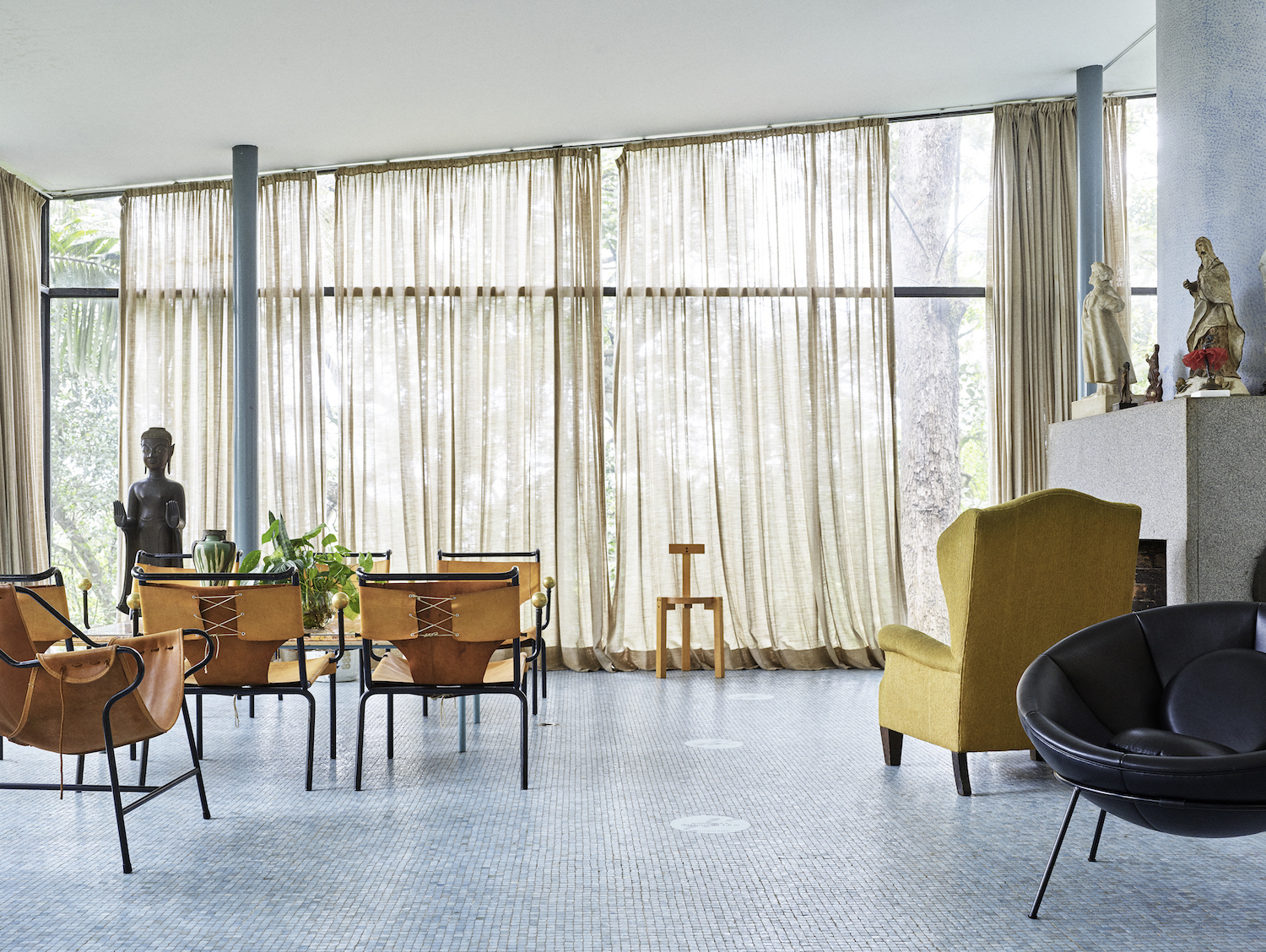Wait — Why Is Everyone Obsessed With This Lamp?
You’ve seen it: Rounded dome, sculptural base. Sometimes glass, sometimes metal, sometimes in colours that feel edible.
The mushroom lamp has popped up (again) in every stylish space: from mid-century modern apartments to Gen Z Pinterest boards. But this isn’t some TikTok trend born yesterday. The mushroom lamp has been around, and its design legacy is a lot deeper than just "cute lighting."
%2012.27.30.png)
A Brief History of the Mushroom Lamp (Yes, It’s Old)
The idea of shaping lamps like mushrooms first appeared nearly a century ago, during the late 1920s and early 1930s — the Art Deco era. This was a time of glamour, geometry, and letting go of Edwardian stiffness. Designers started embracing new materials and silhouettes, and organic forms like the mushroom suddenly didn’t seem so strange; they seemed chic.
But the mushroom lamp didn't hit its peak until the 1970s, when the world (again) was going through major social, cultural, and aesthetic shifts. The '70s were full of earthy tones, psychedelic patterns, and organic inspiration. Designers took cues from nature, and suddenly lamps, tables, and chairs were being shaped like everything from tulips to toadstools.
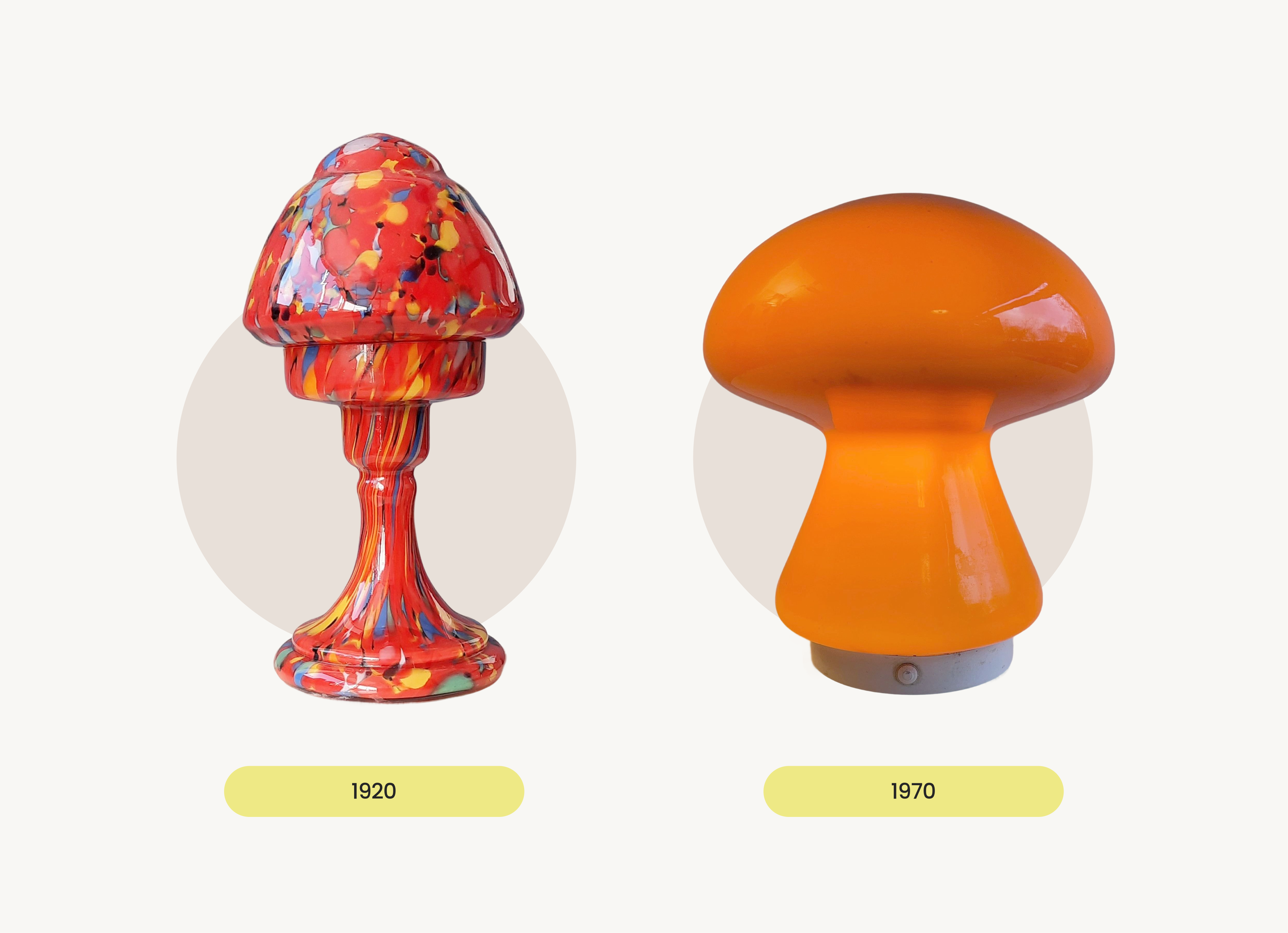
The Pandemic Glow-Up
Fast forward to 2020: the world slows down, everyone starts staring at their homes... and suddenly, we crave cosiness, nostalgia, and a bit of magic.
Enter the mushroom lamp, again. Its rounded, comforting shape, whimsical presence, and photogenic quality made it the perfect object for a generation looking to bring softness and style into their homes. And yes, it looks amazing in a Reels frame.
As designer Jonathan Adler put it: “In the amped-up, Instagrammable age, people are always looking for an escape from the basic — and the mushroom lamp is just not basic.”
%2012.44.15.png)
Style File: What Design Movement Does It Belong To?
The mushroom lamp is a bit of a design chameleon — depending on the era and material, it fits into several categories:
Art Deco (1920s–30s)
- Think opaline glass, polished chrome, and geometric lines.
- Example: The Bauhaus-influenced Wagenfeld lamp by Wilhelm Wagenfeld (1930).
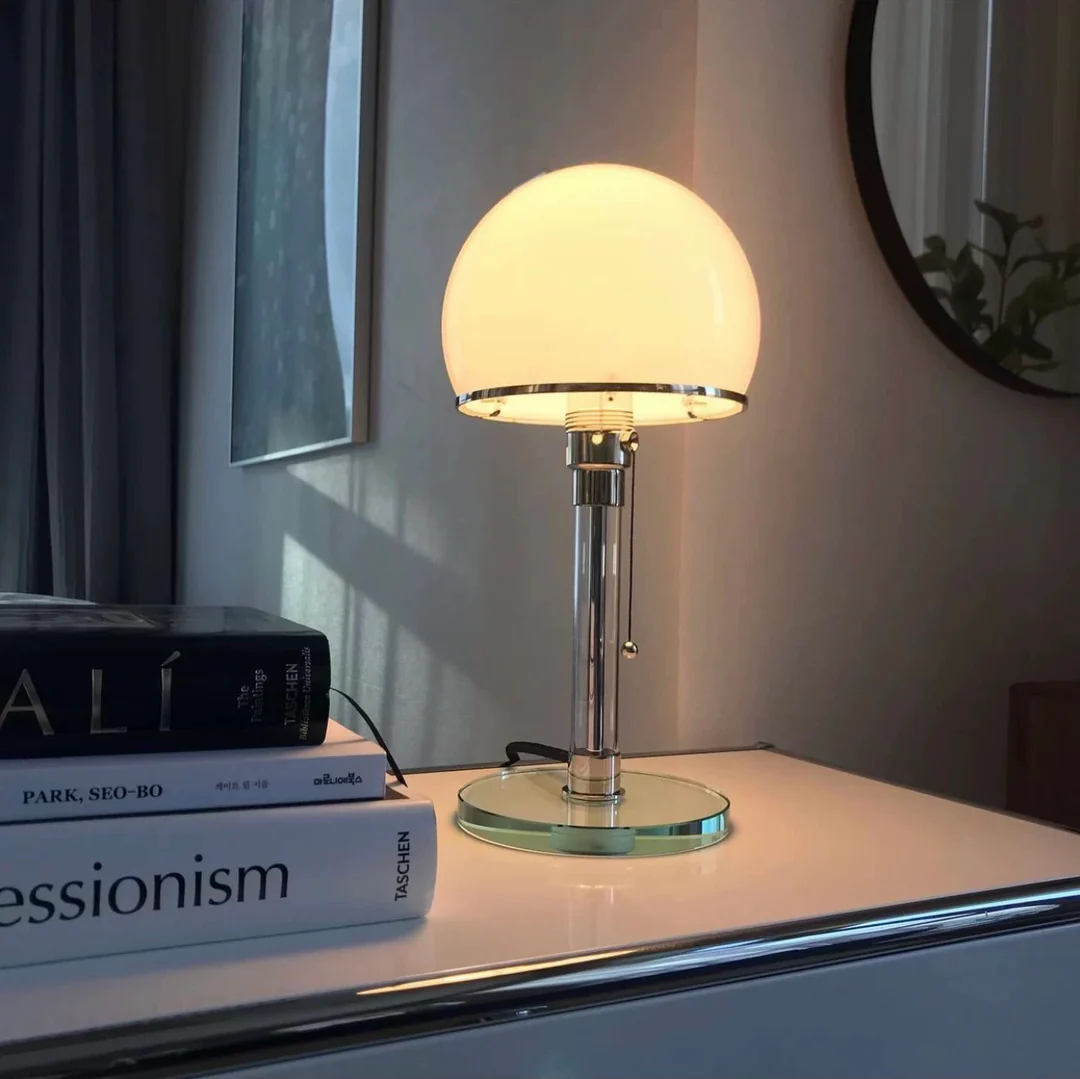
Space Age / 1970s Retro
- Bold plastics, rounded forms, and saturated colours.
- Example: Panthella lamp by Verner Panton (1971) — a true modern icon.
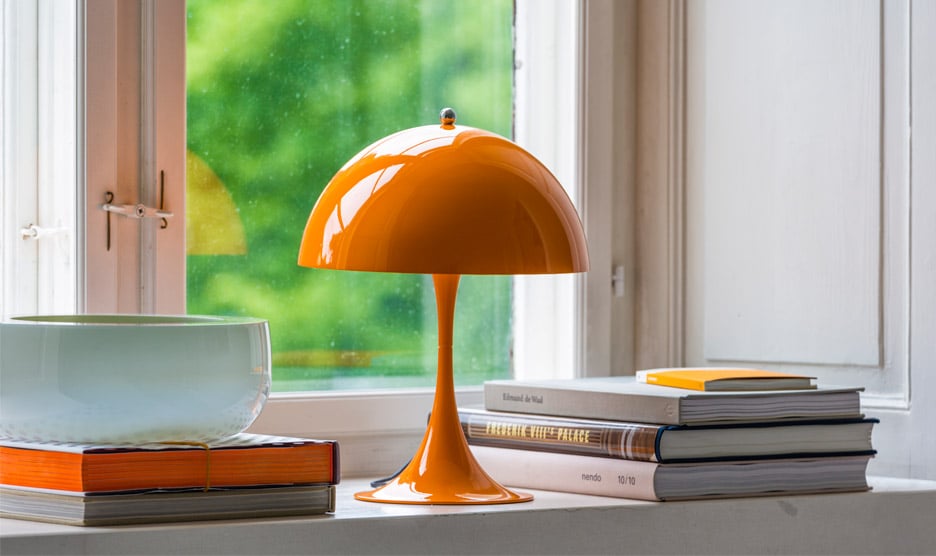
Contemporary Pop & Postmodern (2020s)
- Transparent glass, candy colours, metallic finishes — all meant to pop in your space and your feed.
- Example: &Tradition’s Flowerpot Lamp or Mushroom-style pieces from Urban Outfitters, Hay, and small-batch glassmakers on Etsy.
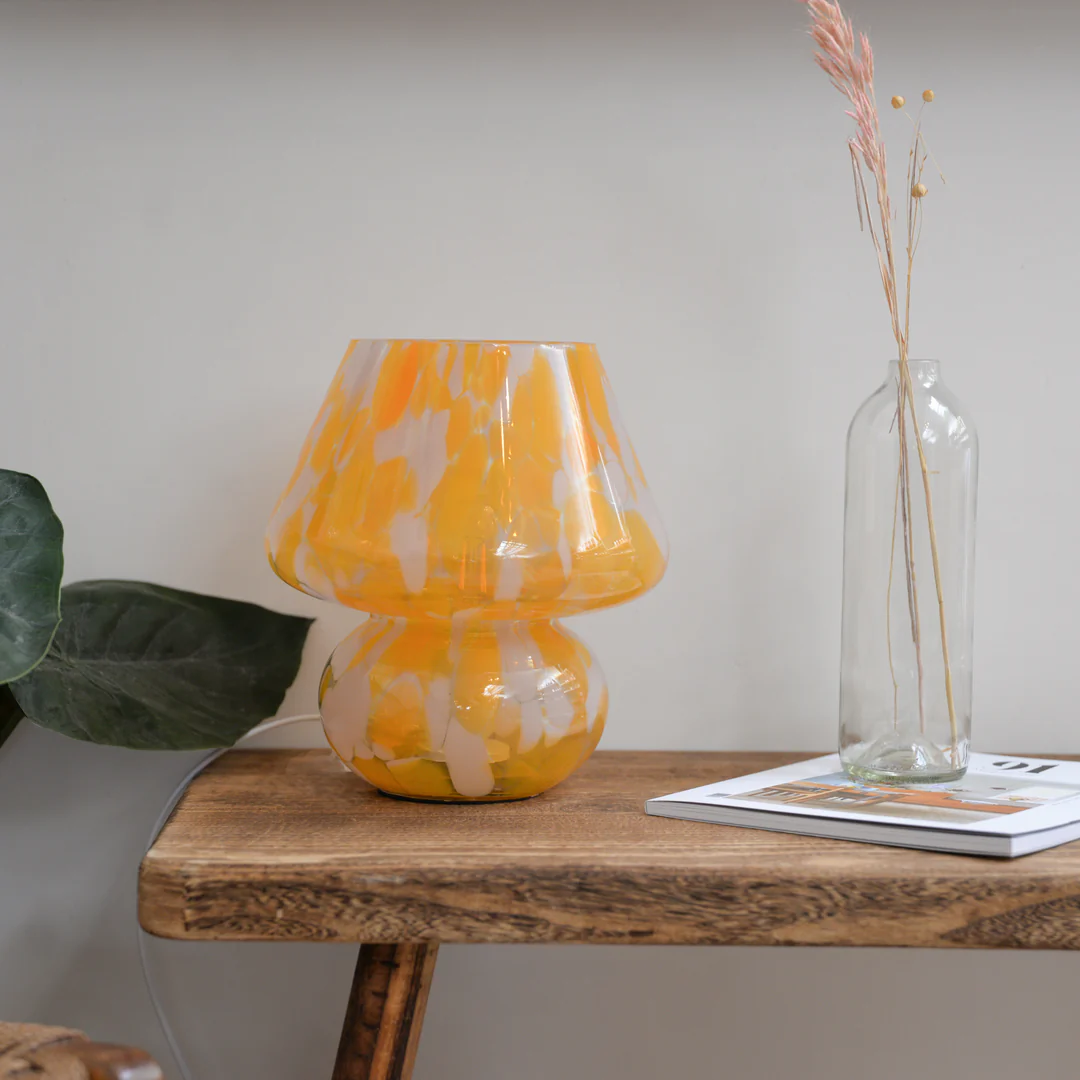
Want the Look?
You don’t have to hunt down a vintage piece to get in on the trend (though that’s always fun).
💎 Originals
- Verner Panton Panthella – Sculptural and timeless
- Wagenfeld WG24 Lamp – Elegant Bauhaus classic
- Vintage Guzzini – For that authentic ‘70s glow
🛍️ Affordable Versions
- The Masie Morel – Budget-friendly and looking like a classic
- Sklum Hilma – In metal and multiple colours
- Kave Home Reig – Creates warmth and sets the mood
Pro Tip: Visualise Before You Buy
The mushroom lamp looks great, but does it work with the rest of your space?
Create a Bemazi board and start placing the vibe next to your actual furniture picks. Compare colours, sizes, and materials before adding to cart.
You can pin inspo, budget your finds and share them with your flatmates so they know what's coming 🍄
Final Thoughts
Some trends come and go.
The mushroom lamp? It glows through decades — adapting, evolving, and still making a quiet statement.
So if you're looking for that one item to make your home feel softer, cooler, and “just not basic”… maybe it’s time to let the mushroom in.

